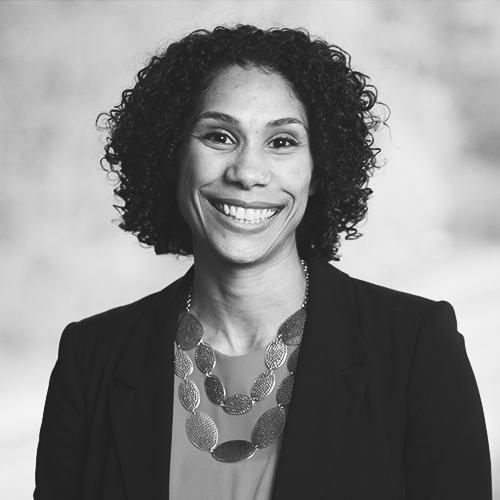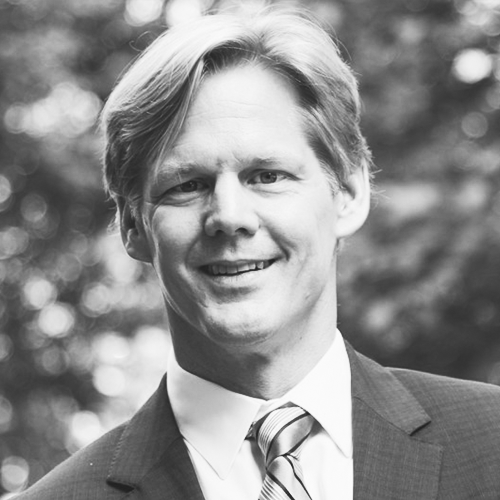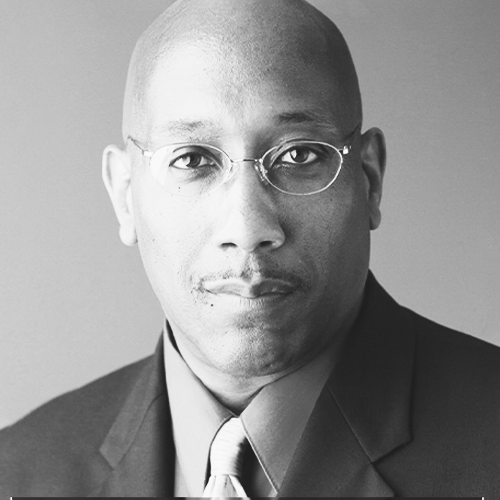Anna Haskins, Assistant Professor of Sociology in Cornell’s College of Arts & Sciences, works in the areas of educational inequality, social stratification, race and ethnicity, and the intergenerational social consequences of mass incarceration. Her work studies how processes and institutions mitigate or exacerbate social inequities, working toward understanding the persistence of racial disparity in outcomes and the role these inequities play in the transmission of inequality or opportunity from one generation to the next.
Criminal (In)Justice
Event Overview
One cannot discuss mass incarceration in the U.S. without also addressing the racial inequalities in our criminal justice system. Despite accounting for just 13 percent of the U.S. population, Black Americans make up 40 percent of the incarcerated population. We’ve also seen time and time again how so-called justice is meted unequally upon people of color, from violent treatment at the hands of police to vast disparities in sentencing.
In this session, experts will discuss racial inequities in law enforcement, arrests, and the growing crisis of incarceration, as well as the intergenerational, familial, and societal costs of having so many of our fellow citizens behind bars.
What You'll Learn
- How our unequal criminal justice system disproportionately affects communities of color and those suffering from poverty
- How incarceration goes far beyond the individual level and has ripple effects that impact families as well as entire communities
- The repercussions of parental incarceration and unjust law enforcement policies on children’s educational development and academic trajectories
- How local, state, and federal policies and practices contribute to social and legal injustice and undermine efforts to strengthen families and stabilize communities of color
- What can be done to begin addressing our criminal (in)justice system
Speakers
Chris Uggen is Regents Professor, Martindale Chair, and Distinguished McKnight Professor in Sociology, Law, and Public Affairs at the University of Minnesota. He studies crime, law, and inequality from a life course perspective, firm in the belief that sound research can help build a more just and peaceful world. With Jeff Manza, he wrote Locked Out: Felon Disenfranchisement and American Democracy (2006), and he publishes extensively in criminology, criminal justice, law, and sociology. Current projects include a comparative study of reentry from different types of institutions, the long-term consequences of harassment and discrimination, crime and justice after genocide, monetary sanctions, and the health effects of incarceration. His outreach and engagement projects include editing Contexts Magazine (2007-2011) and TheSocietyPages.Org (both with Doug Hartmann), a book series and multimedia social science hub that drew four million readers last year. He is a fellow of the American Society of Criminology and served as the 2017-2018 Vice President of the American Sociological Association.
Joseph T. Jones, Jr. is founder/CEO of the Center for Urban Families (CFUF), a Baltimore, Maryland nonprofit service organization established to empower low-income families by enhancing both the ability of women and men to contribute to their families as wage earners and of men to fulfill their roles as fathers. Mr. Jones is now a national leader in workforce development, fatherhood, and family services programming, and through his professional and civic involvement influences policy direction nationwide. Mr. Jones’ civic engagements include service on the boards of the Open Society Institute-Baltimore, Baltimore Workforce Development Board and My Brother’s Keeper-Baltimore. Mr. Jones has received numerous awards and honors for his leadership and programming including the Johns Hopkins University Leadership Development Program’s Distinguished Leadership Award, a honorary Doctorate in Public Service from Morgan State University, the Walter Sondheim Public Service Award and the White House Champion of Change. He was a 2004 Weinberg Fellow, a 2013 CNN Hero, and current Aspen Institute Ascend Fellow.
Kimberly A. Dent is the Executive Director of the Ohio Commission on Fatherhood/Ohio Department of Job and Family Services. She brings 22 years of government experience to the fathers and families she serves in Ohio. During her time with the government, Ms. Dent has served in various capacities in the local and state Child Support Programs such as a child support caseworker at the local level, a program consultant, a business analyst, and a Human Services Program Administrator in County Services, Policy as well as Outreach, Education and Grants Management units at the State Office of Child Support. Ms. Dent has also served as a commissioner on the Ohio Commission on Fatherhood, representing the Ohio Department of Job and Family Services. Ms. Dent holds a bachelor’s degree in Political Science from the University of Pittsburgh and a master’s degree in Public Policy and Administration from Ohio University. She is working on her PhD in Public Policy and Administration, Specializing in Law.

Anna Haskins, Assistant Professor of Sociology in Cornell’s College of Arts & Sciences, works in the areas of educational inequality, social stratification, race and ethnicity, and the intergenerational social consequences of mass incarceration. Her work studies how processes and institutions mitigate or exacerbate social inequities, working toward understanding the persistence of racial disparity in outcomes and the role these inequities play in the transmission of inequality or opportunity from one generation to the next.

Chris Uggen is Regents Professor, Martindale Chair, and Distinguished McKnight Professor in Sociology, Law, and Public Affairs at the University of Minnesota. He studies crime, law, and inequality from a life course perspective, firm in the belief that sound research can help build a more just and peaceful world. With Jeff Manza, he wrote Locked Out: Felon Disenfranchisement and American Democracy (2006), and he publishes extensively in criminology, criminal justice, law, and sociology. Current projects include a comparative study of reentry from different types of institutions, the long-term consequences of harassment and discrimination, crime and justice after genocide, monetary sanctions, and the health effects of incarceration. His outreach and engagement projects include editing Contexts Magazine (2007-2011) and TheSocietyPages.Org (both with Doug Hartmann), a book series and multimedia social science hub that drew four million readers last year. He is a fellow of the American Society of Criminology and served as the 2017-2018 Vice President of the American Sociological Association.

Joseph T. Jones, Jr. is founder/CEO of the Center for Urban Families (CFUF), a Baltimore, Maryland nonprofit service organization established to empower low-income families by enhancing both the ability of women and men to contribute to their families as wage earners and of men to fulfill their roles as fathers. Mr. Jones is now a national leader in workforce development, fatherhood, and family services programming, and through his professional and civic involvement influences policy direction nationwide. Mr. Jones’ civic engagements include service on the boards of the Open Society Institute-Baltimore, Baltimore Workforce Development Board and My Brother’s Keeper-Baltimore. Mr. Jones has received numerous awards and honors for his leadership and programming including the Johns Hopkins University Leadership Development Program’s Distinguished Leadership Award, a honorary Doctorate in Public Service from Morgan State University, the Walter Sondheim Public Service Award and the White House Champion of Change. He was a 2004 Weinberg Fellow, a 2013 CNN Hero, and current Aspen Institute Ascend Fellow.

Kimberly A. Dent is the Executive Director of the Ohio Commission on Fatherhood/Ohio Department of Job and Family Services. She brings 22 years of government experience to the fathers and families she serves in Ohio. During her time with the government, Ms. Dent has served in various capacities in the local and state Child Support Programs such as a child support caseworker at the local level, a program consultant, a business analyst, and a Human Services Program Administrator in County Services, Policy as well as Outreach, Education and Grants Management units at the State Office of Child Support. Ms. Dent has also served as a commissioner on the Ohio Commission on Fatherhood, representing the Ohio Department of Job and Family Services. Ms. Dent holds a bachelor’s degree in Political Science from the University of Pittsburgh and a master’s degree in Public Policy and Administration from Ohio University. She is working on her PhD in Public Policy and Administration, Specializing in Law.
- View slide #1
- View slide #2
- View slide #3
- View slide #4
View Keynote by completing the form below.
You're Registered!
